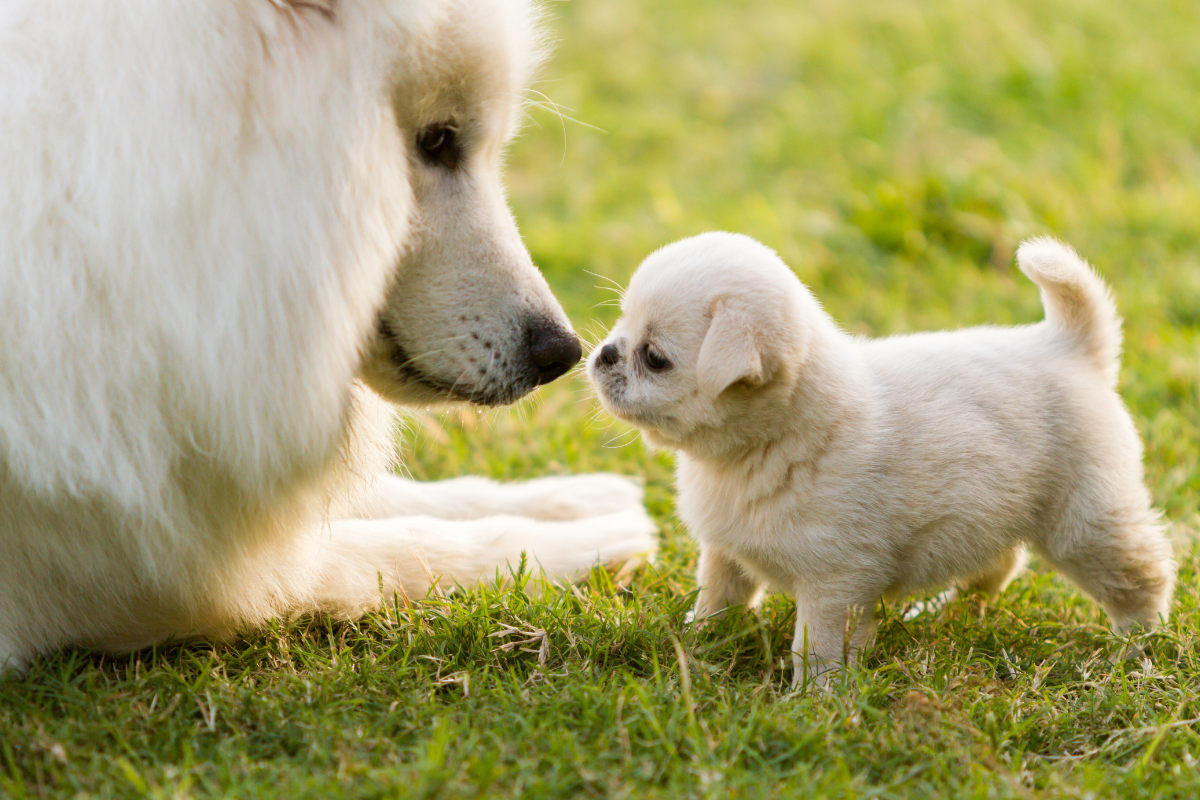Puppy development isn't just about physical growth. Their emotional and social development is just as crucial to their well-being and ability to grow into well-rounded adults. In this article, we'll explore the various aspects of this process, emphasizing the importance of emotional management, play, and vocal interactions between mother and puppies.
Stress and its effects on learning
The mental development of puppies is closely linked to their emotions. A stressed or anxious puppy may have difficulty learning or adapting to their environment. Stress affects memory and learning ability, making their mental growth more difficult. Therefore, it is crucial to provide puppies with a safe and stimulating environment where their emotions can be properly managed to encourage optimal learning.
The importance of managing emotions
Just like humans, puppies experience emotions and must learn to manage them. When faced with stressful situations—for example, meeting another dog or a sudden noise—their brain triggers a “fight or flight” response. Learning to overcome these situations is essential for their maturation. Puppies who benefit from positive experiences and emotional reinforcement better balance their emotions, which helps them become well-adjusted adults, able to respond appropriately to the challenges of their environment.
Play: a driving force of cognitive development
Play is an essential component of puppy development. Through play, they develop their motor skills and strengthen their muscles, while stimulating their brains. This process not only allows them to socialize, but also to develop their cognitive skills. Whether through toys, food puzzles, or interactions with their owners, play significantly contributes to their learning and problem-solving abilities.
The language of tears: a unique acoustic code
From the moment they are born, puppies use crying to attract their mother's attention and receive care. A study conducted by several institutions, including Jean Monnet University in Saint-Étienne, revealed that puppy cries have a unique vocal signature. Each litter of puppies emits specific frequencies, and each puppy within that litter has its own vocal signature, comparable to a "surname" and a "first name." This distinction allows the mother to individually recognize each of her puppies and adapt her care according to their needs.
Crying as a trigger for maternal care
The study demonstrated that mother dogs use the pitch of their cries to assess their puppies' needs. For example, the high-pitched cries of younger dogs trigger more intense maternal responses. This phenomenon was demonstrated in experiments in which mothers moved a loudspeaker playing modified cries into their nest, responding only to the acoustic signals, even in the absence of other sensory cues.
Similarities with human crying
This study also highlighted fascinating similarities between the cries of puppies and those of human babies. Babies' cries, like those of puppies, contain information about their identity and needs, prompting their parents to provide appropriate care. These parallels offer new insights into how vocal communication is used in the animal kingdom, highlighting the striking similarities between mammalian behaviors and human interactions.
The emotional and social development of puppies is a complex process, influenced by their environment, interactions, and the care they receive. By better understanding the emotional and cognitive needs of puppies, we can provide optimal support so they can grow up confidently and become well-rounded adults.




Leave a comment
This site is protected by hCaptcha and the hCaptcha Privacy Policy and Terms of Service apply.